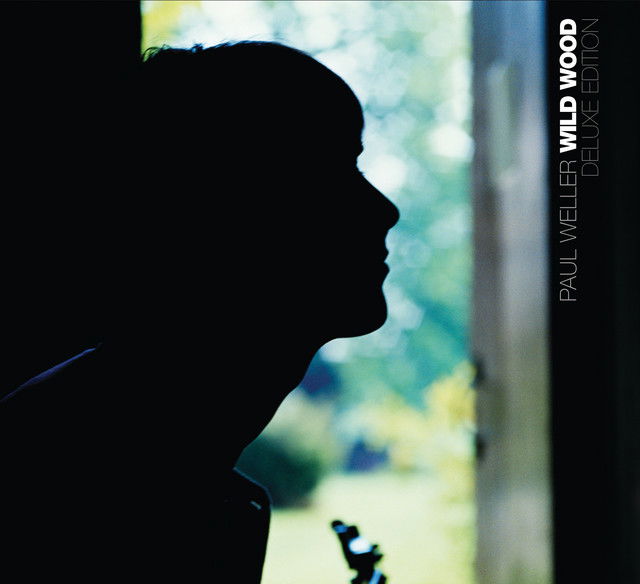Song Stories: Paul Weller: Wild Wood
In the early 1990s Paul Weller was seen as a bit of a has been. He'd had great success with The Jam and the early days of The Style Council but the last album with the The Style Council 1988's 'Confessions of a Pop Group' was met with mixed reviews from fans and critics and in 1989 their attempts at a follow up, 'Modernism: A New Decade' didn't even make it that far. Polydor the bands label rejected it, and The Style Council was over.
For the first time in over a decade. Weller was lost. He had no band, no songs, no direction. He retreated from the public eye and set to work on trying to forge a solo career. The first steps were small, a self titled debut album in 1992. Weller was back writing songs, raw often acoustic led compilations. Which saw him embrace rock, soul and folk. Moving away from the electronic and house influences that had brought an end to The Style Council.
Songs like 'Into Tomorrow' showcased a rawer, more personal side of Weller’s songwriting, while tracks such as 'Above the Clouds' hinted at the introspective and atmospheric style he would refine on his 1993 album 'Wild Wood'.
His debut solo album was a modest commerical success, but more importantly it laid the foundations for solo career, that is going strong today.
Weller re-emerged in 1993, with his second solo album 'Wild Wood'. He had found a new artistic direction and a sense of purpose. This record was more confident and cohesive than his debut and he would fully embrace the folk and psychedelic influences that fans had heard on the previous record. The albums title track and lead single being the most iconic song from the album.
With 'Wild Wood', he embraced folk and psychedelic influences while maintaining the soulful edge that had always defined his music. The song’s acoustic-driven melody, warm organ layers, and introspective lyrics created a deep, organic atmosphere that felt both nostalgic and forward-thinking.
The musical arrangement of Wild Wood reflects Weller’s deep appreciation for classic British folk artists like Nick Drake and John Martyn, as well as the bluesy rock textures reminiscent of Traffic and Small Faces. The earthy, stripped-down production was a stark contrast to the polished, synth-heavy sounds of The Style Council, reinforcing Weller’s commitment to authenticity and raw emotion.
Musically the songs arrangement is a simple affair, which let Weller's lyrics really shine through. His lyrics have always been a strong point, even from the very early days of The Jam. Weller marked himself as one of the finest songwriters of his era. This song a real philosophical affair, that showed a more vulnerable and reflective side to him.

The song and the 'Wild Wood' album played a crucial role in Weller’s career resurgence. After the commercial and critical decline of The Style Council in the late ‘80s, some doubted whether Weller could reclaim his status as a leading force in British music. However, Wild Wood proved that he was far from finished. The album was a commercial success, reaching number two on the UK charts and earning widespread acclaim. More importantly, it re-established Weller as a relevant and innovative artist, rather than a relic of his past successes.
The success of Wild Wood allowed Weller to carve out a distinct identity as a solo artist, free from the constraints of his previous bands. He had always been a chameleon, capable of shifting styles and sounds while retaining his unmistakable voice and songwriting prowess. This album and its title track showed that he could not only survive but thrive in a new era of music. It also set the stage for 'Stanley Road' (1995), which would become an even bigger commercial triumph.
More importantly, 'Wild Wood' helped establish Weller as the ‘Modfather’ of the Britpop movement. While younger bands like Oasis, Blur, and Ocean Colour Scene dominated the scene, Weller’s work provided a bridge between the classic British rock of the ‘60s and ‘70s and the contemporary revival of the ‘90s. His influence could be heard in the anthemic choruses, sharp songwriting, and mod aesthetics that defined the era. He became a mentor and inspiration to a new generation of musicians, many of whom credited Wild Wood as a key influence on their own work.
For Weller, 'Wild Wood' was more than just a song. It was a statement of intent, a reinvention, and a reaffirmation of his place in the ever-changing world of music. And for fans, it remains a song that captures the essence of self-exploration and the enduring power of great songwriting. Its themes of resilience and self-discovery continue to resonate with audiences, making it a track that grows with its listeners over time.